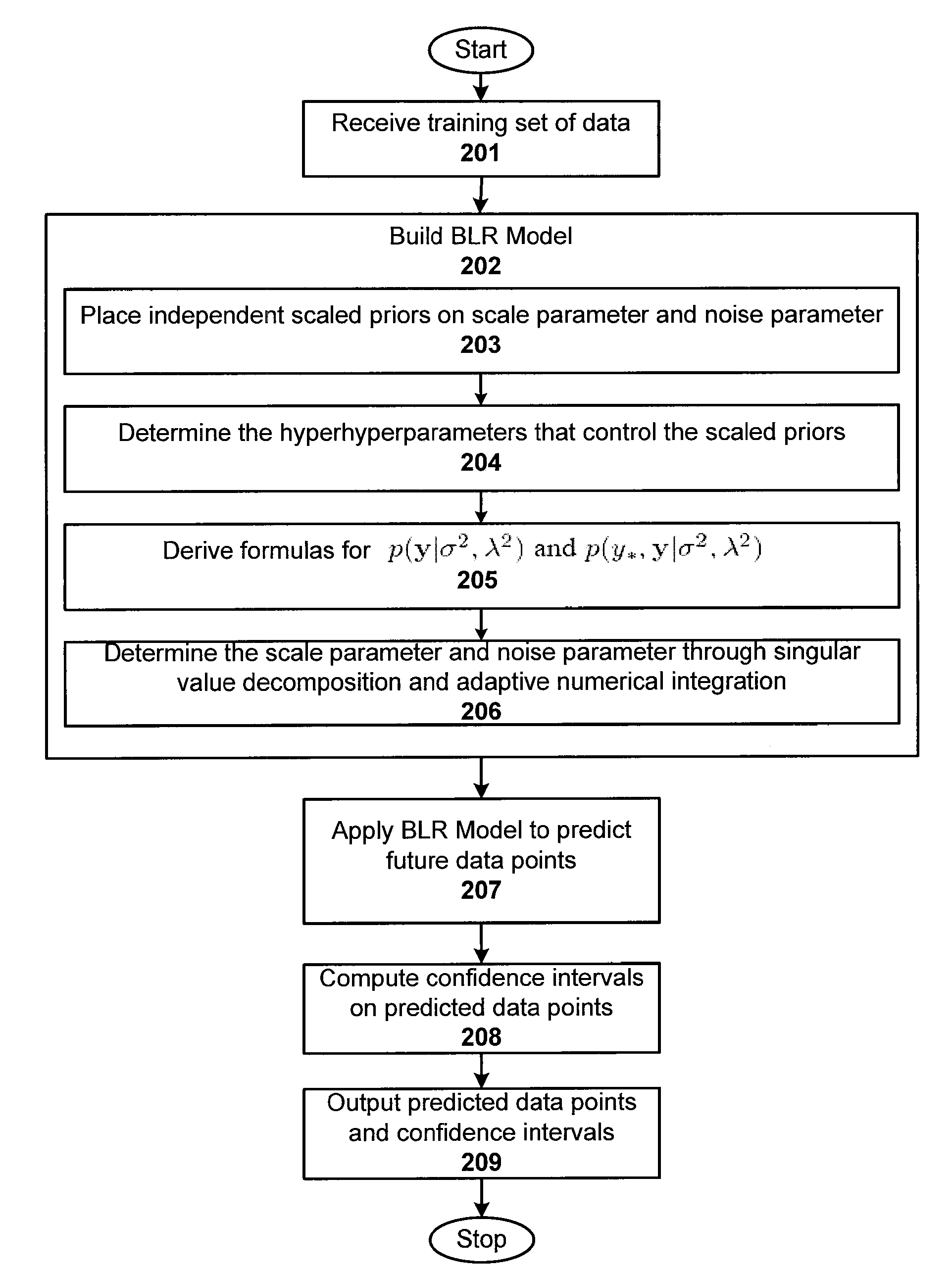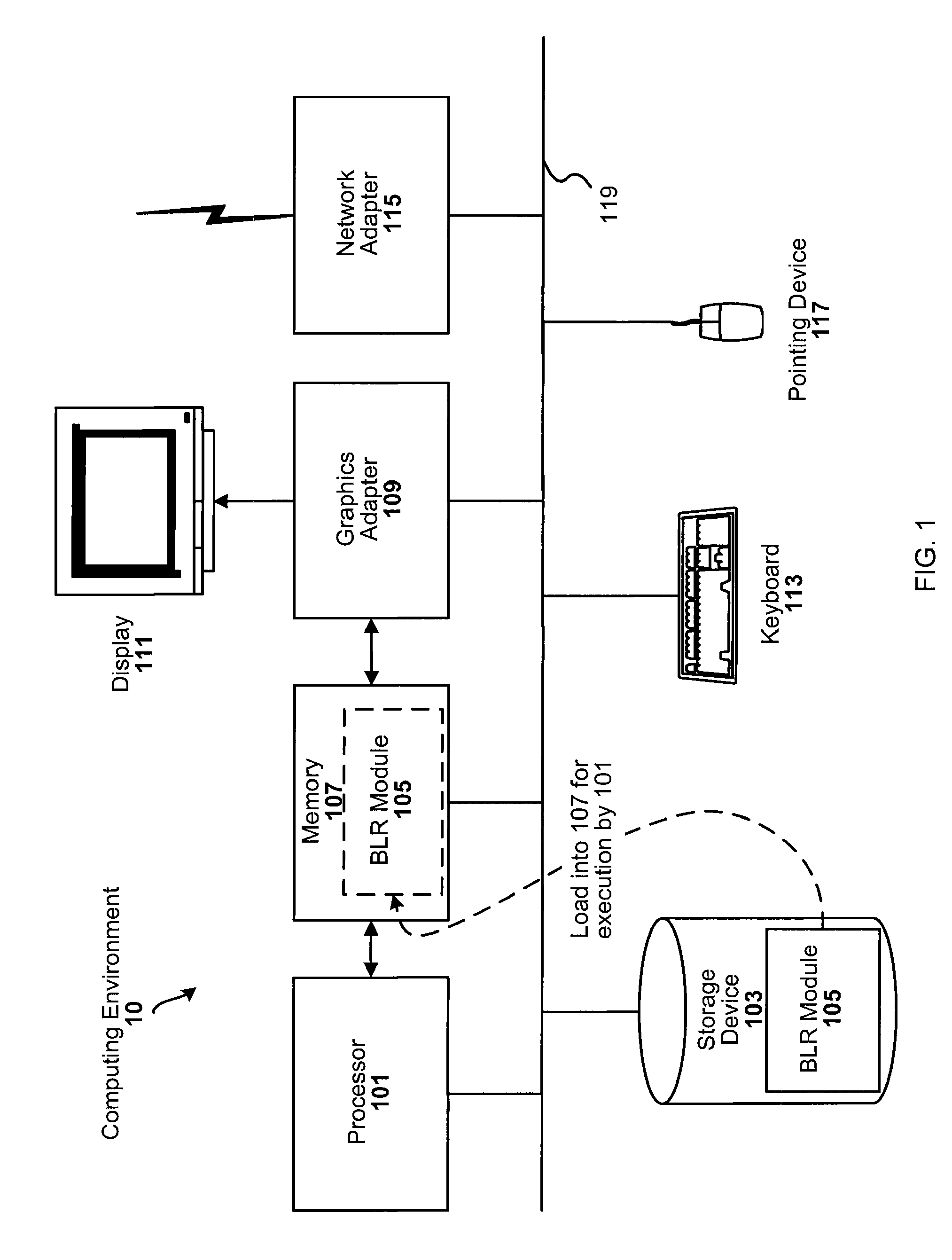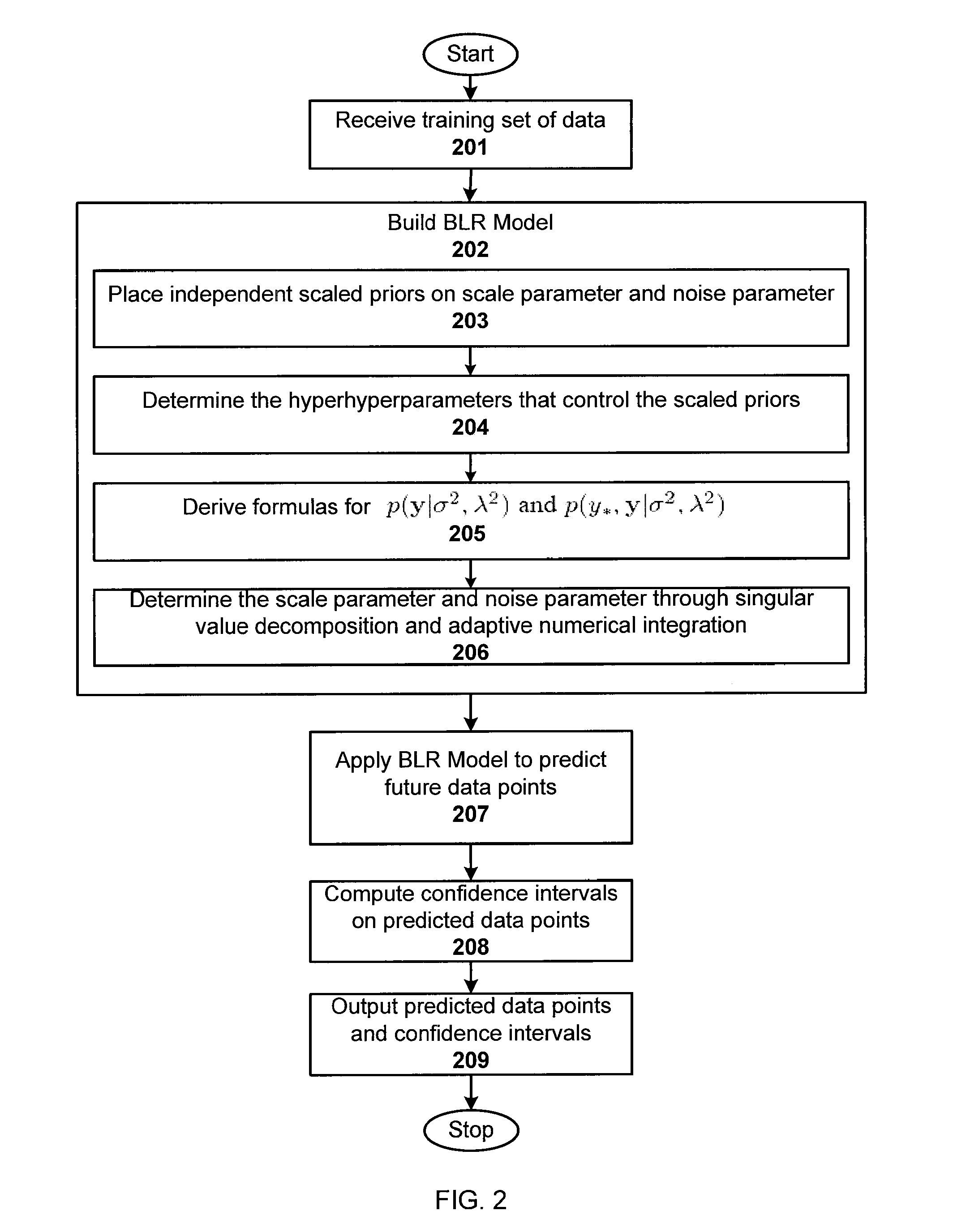Fully Bayesian Linear Regression
a fully bayesian linear and regression technology, applied in the field of machine learning, can solve the problem that modern tools do not make much use of direct numerical low-dimensional integration, and achieve the effect of avoiding overfitting
- Summary
- Abstract
- Description
- Claims
- Application Information
AI Technical Summary
Benefits of technology
Problems solved by technology
Method used
Image
Examples
Embodiment Construction
[0029]In Section 1, a system overview is presented of the computing environment configured in accordance with an embodiment of the invention. In Section 2, a methodology is presented for the use of a Bayesian linear regression model. In Section 3, some mathematical preliminaries are briefly discussed. Section 4 introduces a model in accordance with one embodiment of the invention. Section 5 discusses the analytic derivations, and provides the pieces of the model that can be evaluated analytically. Section 6 demonstrates how to evaluate the remaining parts computationally. Section 7 compares the described model to related work in the field. Section 8 describes a computational experiment illustrating the properties of the model and method in accordance with one embodiment.
1. System Overview
[0030]FIG. 1 is a block diagram illustrating a computing environment 10 configured in accordance with an embodiment of the present invention.
[0031]As can be seen with this example, the computing env...
PUM
 Login to View More
Login to View More Abstract
Description
Claims
Application Information
 Login to View More
Login to View More - R&D
- Intellectual Property
- Life Sciences
- Materials
- Tech Scout
- Unparalleled Data Quality
- Higher Quality Content
- 60% Fewer Hallucinations
Browse by: Latest US Patents, China's latest patents, Technical Efficacy Thesaurus, Application Domain, Technology Topic, Popular Technical Reports.
© 2025 PatSnap. All rights reserved.Legal|Privacy policy|Modern Slavery Act Transparency Statement|Sitemap|About US| Contact US: help@patsnap.com



